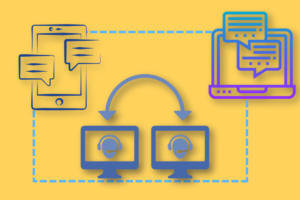Co-creation of knowledge using mobile technologies and digital media as pedagogical devices in undergraduate STEM education
 Digital media assignments are a widely used method of assessing student learning in higher education. Despite their common use, the literature on digital media assignments has many gaps regarding theoretical frameworks to guide their design, implementation and evaluation. This research paper focuses on student attitudes towards the use of mobile technology and digital media assignments in undergraduate STEM education. The study used a set of novel theoretical frameworks to identify training needs in digital media production, development of assessment weightings, marking rubrics and student training and resources. Longitudinal data were captured over a period of 4 years (n = 1724) using a mixed-methods approach. Validated questionnaires measured student attitudes to digital media support and attitudes to technology, understanding of the assignment, knowledge construction and digital media for learning and career development. Open-ended questions helped gather suggestions from students for improving the assessment task. Questionnaire data were analysed by using descriptive statistics and qualitative data with thematic analysis. The results suggested that students enjoyed group work, found learning with digital media to be engaging and developed critical thinking and digital media skills. In conclusion, STEM students had a positive learning experience repurposing mobile technology as pedagogical devices that present knowledge by using a multi-modal approach mediated by digital media.
Digital media assignments are a widely used method of assessing student learning in higher education. Despite their common use, the literature on digital media assignments has many gaps regarding theoretical frameworks to guide their design, implementation and evaluation. This research paper focuses on student attitudes towards the use of mobile technology and digital media assignments in undergraduate STEM education. The study used a set of novel theoretical frameworks to identify training needs in digital media production, development of assessment weightings, marking rubrics and student training and resources. Longitudinal data were captured over a period of 4 years (n = 1724) using a mixed-methods approach. Validated questionnaires measured student attitudes to digital media support and attitudes to technology, understanding of the assignment, knowledge construction and digital media for learning and career development. Open-ended questions helped gather suggestions from students for improving the assessment task. Questionnaire data were analysed by using descriptive statistics and qualitative data with thematic analysis. The results suggested that students enjoyed group work, found learning with digital media to be engaging and developed critical thinking and digital media skills. In conclusion, STEM students had a positive learning experience repurposing mobile technology as pedagogical devices that present knowledge by using a multi-modal approach mediated by digital media.







